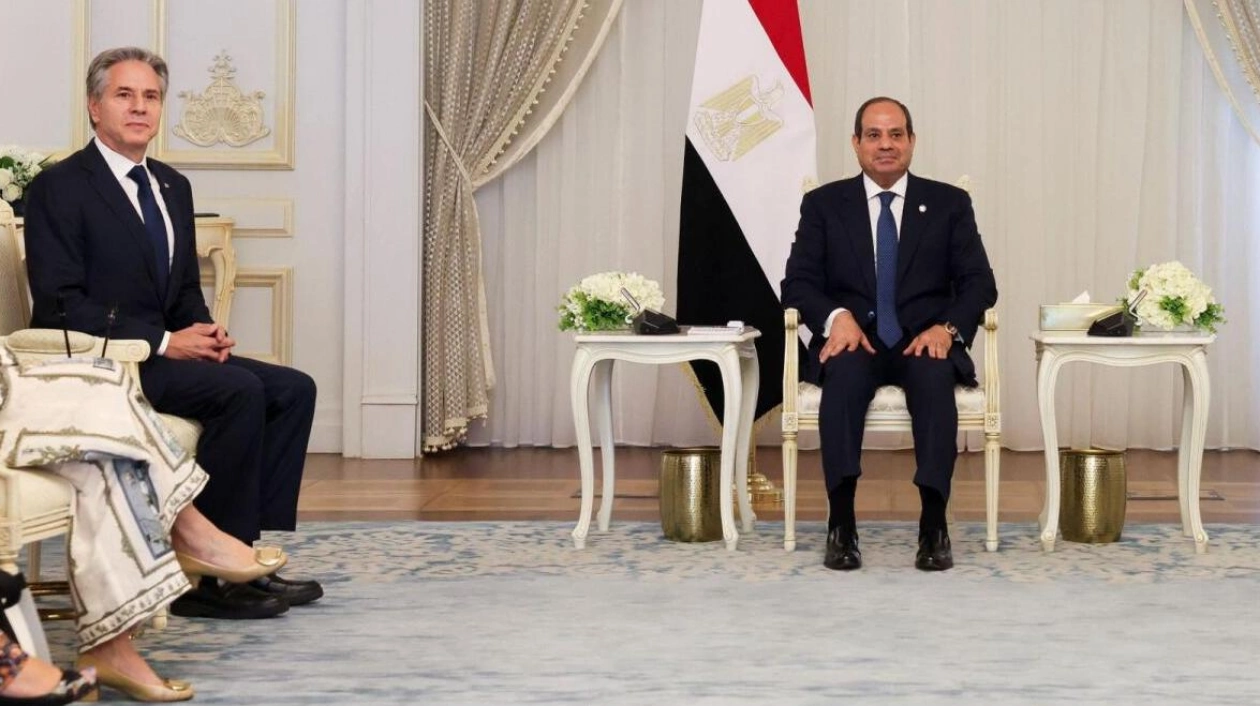US Secretary of State Antony Blinken arrived in Egypt on Tuesday, aiming to advance discussions on a potential ceasefire in Gaza and the release of hostages. These talks are scheduled for later this week, with significant disagreements still pending resolution. Blinken had previously visited Tel Aviv, where he announced that Israeli Prime Minister Benjamin Netanyahu had agreed to a US 'bridging proposal' designed to close the gap between the negotiating parties after last week's discussions ended without a resolution. He encouraged Hamas to also consider this proposal as a foundation for further dialogue. Hamas has not outright rejected the proposal but has expressed concerns that it retracts from previously agreed-upon points and has accused Israel and the US of prolonging the negotiation process in bad faith.
In Egypt, Blinken met with President Abdel-Fattah El Sisi, who, along with the US and Qatar, has been mediating the intermittent Gaza talks for several months. The outcome of these talks could determine the future of Gaza, a densely populated area where Israel's military operations have reportedly resulted in over 40,000 deaths since October, according to Palestinian health authorities, as well as the fate of the remaining hostages. The conflict in Gaza erupted on October 7, 2023, when Hamas militants attacked Israeli communities, killing approximately 1,200 people and taking around 250 hostages, according to Israeli reports.
On Tuesday, the Israeli military announced the recovery of six hostage bodies from southern Gaza, stating that 109 hostages still remain in the territory, with an estimated third believed to be deceased. In Gaza, Israeli forces continued to engage with Hamas-led militants in central and southern regions, while Palestinian health authorities reported at least 12 deaths early Tuesday due to Israeli strikes, including at a school housing displaced individuals. The Israeli military claimed to have targeted militants at a Hamas center within the school. Gaza's Hamas-run health ministry expressed ongoing concern about the lack of polio vaccines, following the discovery of the disease in the area, where most residents now live in tents or shelters without adequate sanitation. This concern mirrors the UN's recent call for a ceasefire to facilitate a vaccination campaign.
Blinken described the current effort to reach a deal as 'probably the best, possibly the last opportunity', noting that his meeting with Netanyahu was productive and that it was now up to Hamas to accept the bridging proposal. US officials have not detailed the contents of the proposal or how it differs from earlier versions. 'There are questions of implementation and ensuring that it's clearly understood what each side will do to fulfill its commitments,' Blinken stated on Monday. Hamas official Osama Hamdan criticized the latest developments, stating that the US proposal accepted by Netanyahu introduced ambiguities as it differed from previous agreements.
The ongoing negotiations have repeatedly addressed the same issues, with Israel insisting that the war can only conclude with the elimination of Hamas as a military and political entity, and Hamas demanding a permanent, not temporary, ceasefire. Disagreements persist over Israel's military presence within Gaza, particularly along the border with Egypt, the unrestricted movement of Palestinians within the territory, and the specifics of prisoner exchanges. Egypt is particularly concerned with establishing a security mechanism for the Philadelphi Corridor, the narrow border strip between Egypt and Gaza that Israeli forces took control of in May. Both Hamas and Egypt oppose Israel maintaining troops there, but Netanyahu has argued that they are necessary to prevent weapons smuggling into Gaza. Egyptian security sources revealed that the US has suggested an international presence in the area, which could be acceptable to Cairo if limited to a maximum of six months.






